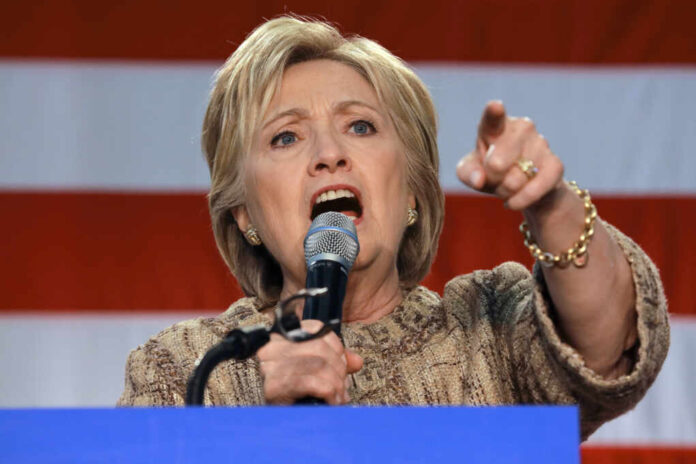
Hillary Clinton has ignited a firestorm by labeling most Republican women as “handmaidens to the patriarchy,” revealing her unchanged views of conservative Americans since her infamous “deplorables” comment.
At a Glance
- Clinton stated at a New York forum that almost all Republican women are “handmaidens to the patriarchy,” exempting only Sen. Lisa Murkowski and former Rep. Liz Cheney
- Her comments came in response to a question about advice for the first female president of the United States
- Clinton lamented the difficulty women face in achieving the presidency, referencing her own and Kamala Harris’ unsuccessful bids
- She has previously demonstrated a pattern of dismissing conservative women, notably excluding Margaret Thatcher from her book “The Book of Gutsy Women”
Clinton’s Divisive Remarks About Conservative Women
During a May 1 forum at The 92nd Street Y in New York City, Hillary Clinton made statements that have reignited tensions between progressive and conservative women across America. When asked by moderator Margaret Hoover what advice she would give to the first female President of the United States, Clinton’s response was pointed and partisan: “Well, first of all, don’t be a handmaiden to the patriarchy, which kind of eliminates every woman on the other side of the aisle, except for very few.”
Clinton specifically identified Republican Senator Lisa Murkowski and former Representative Liz Cheney as the only exceptions to her sweeping characterization of GOP women. The former Secretary of State’s comments reflect a continuation of her perspective that only women who align with her political ideology can be considered legitimate female leaders or true feminists.
This latest controversy echoes Clinton’s infamous “basket of deplorables” comment from her 2016 presidential campaign, which many analysts believe contributed to her electoral defeat. The recurring theme suggests Clinton maintains a dismissive view of Americans who don’t share her political values, particularly conservative women who have found their own path to empowerment outside progressive orthodoxy.
— Shaun Maguire (@shaunmmaguire) May 30, 2024
A Pattern of Excluding Conservative Women
Clinton’s recent comments align with her established pattern of excluding conservative women from her vision of female empowerment. Notably, she omitted former British Prime Minister Margaret Thatcher from her book “The Book of Gutsy Women,” explaining that Thatcher “doesn’t fit the other part of the definition in our opinion, which is really knocking down barriers for others and trying to make a positive difference.”
This selective recognition of female achievement based on political alignment has prompted criticism from conservatives who argue that Clinton’s brand of feminism is fundamentally partisan rather than truly supportive of all women. Many Republican women, including mothers, professionals, and political figures, have expressed frustration at being characterized as subservient to patriarchal structures simply because they hold conservative values on issues like family, faith, and government.
— TW@ (@expatassassin) May 12, 2025
The Presidency and Gender Politics
During the same forum, Clinton also addressed the challenges women face in achieving the presidency. “Look, first we have to get there, and it is, you know, obviously so much harder than it should be,” she stated, referencing both her own failed bid and Vice President Kamala Harris’s unsuccessful 2024 campaign. Clinton indicated she would support a woman presidential candidate who she believes “would be a good president,” though her criteria appear to exclude most conservative women.
Interestingly, Clinton’s focus on gender politics contrasts with Harris’s approach during her campaign, which placed less emphasis on her gender. Data showed Harris performed better with female voters compared to Trump in the 2024 election, though this advantage wasn’t sufficient to secure victory. Meanwhile, Republican Nikki Haley made some progress in the Republican primary before ultimately failing to secure the nomination, demonstrating that women across the political spectrum continue to seek the highest office.

























